Most people go through life without a plan. They just kind of stumble from one day to the next, never really reaching their potential. But what if you could achieve more? What if you could live your optimal life?
Rob Dube is a longtime friend of Traction author Gino Wickman. From Gino, he learned 10 disciplines for managing and maximizing your energy, letting you live life to the full. Rob shares all 10 disciplines in this episode of James Schramko.
Podcast: Download (Duration: 43:56 — 44.3MB)
Get Notified Of Future Episodes Apple Podcasts | Spotify | Amazon Music | Android | Blubrry | Gaana | TuneIn | Deezer | Anghami | RSS | More
In the podcast:
Who do you want to be 10 years from now, and what can you do today to make that happen? [07:21]
Take at least 130 days a year away from work to sharpen the saw. [10:35]
Knowing yourself and being yourself give off a special kind of energy. [14:06]
Take half an hour out of life’s craziness just to be still and silent. [17:01]
What is your work container? How much time does it take to give value to the world? [19:57]
You’re likely not saying no as often as you should. [23:47]
Let someone else do the $25 an hour work. [28:56]
Get a head start on tomorrow by planning it out tonight. [31:41]
How much easier would it be to have all your notes in one place? [34:09]
Consider yourself no better than anyone else on the planet. [37:39]
Build a business and life you love with James’s help
A great many people wander through living with no real direction, frittering away time, energy and potential.
What if it took just a few simple rules to optimize your life?
Rob Dube lives and teaches 10 disciplines for doing just that, gleaned from long association with his and James’s mutual friend, Gino Wickman. And in this appearance, he shares all 10.
Before diving in, however, he and James caution listeners: you could know the disciplines, but you don’t experience the result of having that knowledge until you put them into practice.
They’re simple, they’re fast, and they’re fully customizable to your unique self, says Rob. But they’re not easy to incorporate and keep in your life. That’s why at the10disciplines.com, there is an online course and community with group and one-on-one coaching to help dial in the 10 disciplines. Because they can ebb and flow, and even be forgotten. But once you’ve got them down, it opens up space in your life that lets you bring your true value to the world.
Think a decade ahead of where you are
Discipline one is 10-year thinking. James loves that. His podcast and membership are over 10 years old, so he’s no stranger to the concept. He’d like a snapshot from Rob.
Simply stated, Rob says, it’s about shifting your mind from short-term thinking to thinking in 10-year timeframes. It’s easier for some people than others. Some can only think a week from now. Others are thinking a century ahead.
So with 10 years as the starting point, he recommends a simple exercise. Whatever year you’re listening, think 10 years ahead. What would you like your life to look like? And it can even be just one thing. Picture what that is.
Once you have that image, start today to make decisions and take actions that align with it. And you can expand beyond that with visioning statements, audacious goals, etc. But at the most simplistic form, that’s your starting point.
James does exactly that. He’s now living a life he envisioned in his 20s. And just this year, he attained the surfing milestone of getting barreled, after eight years picturing it in his mind.
Give yourself a well-deserved break
Discipline number two: take time off. James is huge on this, having cut back his own workweek to just three days.
The root statement there, says Rob, is to take at 130 days off per year, and – this is important – don’t think about work the entire day. If it sounds overwhelming, here’s context: If you took every weekend and every holiday off, and took three weeks’ vacation, that’s pretty close to 130 days.
The tough part for most people is not thinking about work the entire day. And Rob recommends not even checking email. Leave your email behind, don’t call in to the office, don’t check in. Don’t even read business books.
And when you take that mental break from work, says Rob, really unique things begin to happen. James may have experienced this with his three-day workweek – the mind comes up with some amazing ideas and solutions to challenges when you’re not working.
It’s a very powerful discipline, and it allows you to reenergize not just your mind, but your physical sense, your energy.
How real are you around other people?
On to discipline three, know thyself.
Simply put, be you 100 percent of the time, 24/7, 365.
Many people are chameleons, and even proud of it. When they’re out in the world, they find themselves trying to fit in to whatever their situation is.

“The deep dive into truly who you are is a lifetime process.” – Rob Dube
Of course, to be yourself, you need to know yourself. So Rob encourages listeners to look at profiling or therapy, whatever it takes to get in touch with their real selves. Take a deep dive into truly who you are. And it’s a process, Rob admits, a lifetime process.
It takes discipline, James thinks, or courage. The Courage to Be Disliked is a great book that comes to mind. And for him, the process of leaving his job was a big step down the path to self-knowledge.
There’s power in doing nothing
Be still is the fourth discipline. Rob must know a lot about this, says James, having written a book, Do Nothing.
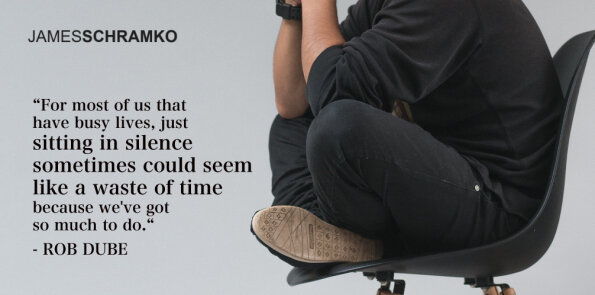
And Rob likes to quote author Anne Lamott: My mind is like a bad neighborhood. I try to never go there alone. He suspects this accounts for many people’s difficulty with sitting still. It’s hard, even painful, to sit in silence, because our minds get going.
But it’s a great practice. And over time, your mind settles. And there are many ways to accomplish this. Rob meditates. Some people pray, or journal. Others just sit and contemplate things. Rob knows someone who watches a willow tree sway in the wind for 30 minutes, and that calms her mind. It’s fully customizable, so you find what works best for you.
The people who are always busy, says James, it’s straight back to that Stephen Covey thing, about the wood choppers. You get a blunt ax, you’re not going to make any progress.
“Our mind needs a break and our body needs a break.” – Rob Dube
Yeah, we have to settle down, Rob says. Our mind needs a break and our body needs a break.
How many hours for you is 100 percent?
Discipline five, know your 100 percent.
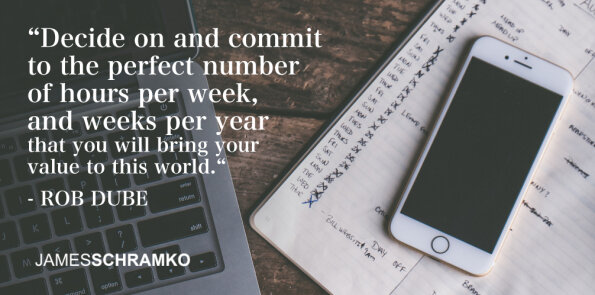
And they’re not full days, James says. It’s a morning and an evening session and most of the day off. Fifteen hours per week. And he sticks by this. When people want private coaching outside that container, he offers alternatives that will get them the result without encroaching on his free time.
“You’re the boss of your own life.” – James Schramko
And he teaches this to his students as well – you’re the boss of your own life. It’s up to you to set those rules.
James worked for over a decade with scarcely a day off. Now that he calls the shots, his schedule revolves around being able to surf every day. That’s his non-negotiable.
Get good at saying no
Which brings us to discipline six, say no often.
Now, says Rob, the first five disciplines may have seemed quite simple. But he wants to reinforce, they are simple, fast, and customizable, but they’re not easy to incorporate into your life. They do take proper effort, hence the term disciplines.
So number six, say no often, is where we say no to everything that doesn’t fit into the first five disciplines. The work container is a great example. Someone asks to meet James during his surfing time, the answer is automatically no.
Or bring your surfboard, says James.
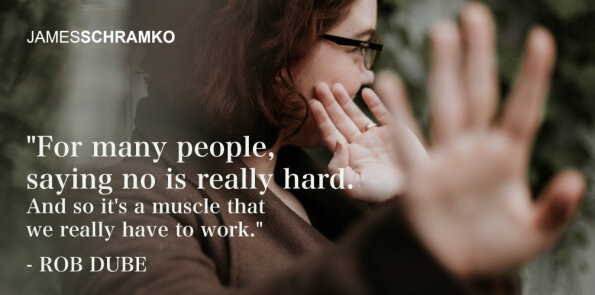
On a certain profiling tool, Rob comes up as a helper and achiever. So when someone asks a favor, he wants to say yes, and he goes all in. If he says yes too often, it will drain his energy. So it’s important he flex the no muscle. And we needn’t feel guilty, he says. We can provide people with alternate solutions while still saying no.
“That’s your gauge, is this the true value that I’m bringing to this world?” – Rob Dube
And when you say no, beware the entrepreneurial trap of filling up that time, unless it fits into the true value that you are bringing to this world. That’s your gauge, is this the true value that I’m bringing to this world? And if you look back at the first five disciplines, you’ll know the answer.
Should you really be doing that?
Let’s talk about discipline seven, says James, don’t do $25 an hour work.
So, never do anything you could pay someone $25 an hour to do. Not that it’s bad or unimportant work, but for a high performer to bring their true value to the world, they need to be doing higher-paying activities.
If what you’re doing is $25 an hour work, says Rob, delegate tasks to others. Hire an assistant if you need one. Even for personal tasks like mowing the lawn, if you don’t love it, hire it out. It will give you time and energy to deliver your real value.
Besides that, there’s the numbers. Twenty-five dollars an hour is $50,000 a year in an annual salary. If you want to make at least six figures, you’ve got to be doing $50 an hour work at a minimum.
And you can do the math from there. How much do you want to make and what does that equate to hourly? How many hours are you going to work?
Pretty much the core premise of James’s book, Work Less, Make More, is effective hourly rate. He’s even got an EHR calculator on his site. If you click on Tools at the very bottom of JamesSchramko.com, you’ll find it there.
Have it all laid out the night before
Discipline eight, prepare every night.
Before your head hits the pillow every night, Rob recommends you document the next day’s plan. It’s ridiculously simple, but powerful. And so many people don’t do it.
Look at what’s going on for the next day, and write it down, or type it, whatever works for you. This will give you absolute clarity about what’s happening tomorrow.
Interesting things can happen from this. One, you’ll sleep better. Second, while you sleep, your subconscious will get to work solving problems and formulating new ideas. And when you wake, you’ll hit the ground running.
Answers may appear seemingly out of nowhere to problems you’ve been grappling with, and Rob would argue they come from simple preparation. You prepared yourself, and you allowed your subconscious to do the work.
All those important ideas in one place
James likes the look of number nine. Put everything in one place.
The root here, says Rob, is pick the one place where you will capture every idea, commitment, thought, action item and promise.
Many people in their busy lives are jotting down things that are coming at them during the day. And it might be in their smartphone, or on a scrap of paper or on a Post-it note. They might have a journal, or they might just try to remember it. And when notes go missing or stuff is forgotten, Rob says, they let people down.
One person who went through Rob’s program cleaned off his desk. He found paper scraps and Post-its containing opportunities lost. And that, to him, was a lesson not to allow it again.
It’s as simple as having one thing by your side, where you’re going to jot down everything. It can be your smartphone or a tablet. Gino Wickman uses a yellow legal pad. Rob has a reMarkable tablet. It can be a paper tablet or a journal. Whatever it is for you, pick it, stick with it, and have it by your side at every moment, so you don’t forget what you need to do and what you’ve promised.
James uses Apple notes. It’s on his phone and his computer, always with him. But he only notes what passes the 80:20 importance filter. Otherwise, he’d have a lot of data to manage.
A little humility goes a long way
The final discipline, number 10, is be humble. That is simply to view yourself as an equal to every person on the planet.
Interestingly, says Rob, the definitions of humble and arrogant are quite similar. Humble is your estimate of your own importance in comparison to others. And arrogant is the way you view your level of importance in comparison to others.
Simply stated, arrogant people feel more important. But what Rob always likes to emphasize is that this can be very subtle. Pay close attention, he says, especially in times where you have a subordinate, somebody who works for you. Or maybe you’re in a hospitality situation, like a restaurant or hotel. Are you treating the person across from you as an equal?
When you are humble, says Rob, it draws people to you. And usually those people can be quite humble themselves. And there’s something really special about being around humble people in this world, because we have a finite amount of time. And to be around those kinds of people is the way it should be.
They could have called this discipline be grateful, Rob adds, because he never met somebody who was humble who wasn’t grateful on a daily basis. And he encourages and invites the audience to think each and every day of at least one thing that they’re grateful for in their lives. It is such a simple and powerful practice to do.
James thanks Rob for going through these disciplines. It must be arduous.
Not at all, says Rob. It’s an absolute joy. And he appreciates James allowing him to do so.
If you think the 10 disciplines could transform your life, Rob’s website is the10disciplines.com.
Join the community of fulfilled entrepreneurs inside the James Schramko membership
Enjoyed the show? Leave us a review on iTunes


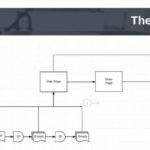
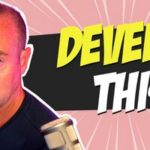





Leave a Reply